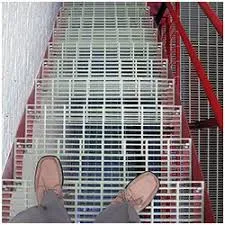
-
 Afrikaans
Afrikaans -
 Albanian
Albanian -
 Amharic
Amharic -
 Arabic
Arabic -
 Armenian
Armenian -
 Azerbaijani
Azerbaijani -
 Basque
Basque -
 Belarusian
Belarusian -
 Bengali
Bengali -
 Bosnian
Bosnian -
 Bulgarian
Bulgarian -
 Catalan
Catalan -
 Cebuano
Cebuano -
 China
China -
 China (Taiwan)
China (Taiwan) -
 Corsican
Corsican -
 Croatian
Croatian -
 Czech
Czech -
 Danish
Danish -
 Dutch
Dutch -
 English
English -
 Esperanto
Esperanto -
 Estonian
Estonian -
 Finnish
Finnish -
 French
French -
 Frisian
Frisian -
 Galician
Galician -
 Georgian
Georgian -
 German
German -
 Greek
Greek -
 Gujarati
Gujarati -
 Haitian Creole
Haitian Creole -
 hausa
hausa -
 hawaiian
hawaiian -
 Hebrew
Hebrew -
 Hindi
Hindi -
 Miao
Miao -
 Hungarian
Hungarian -
 Icelandic
Icelandic -
 igbo
igbo -
 Indonesian
Indonesian -
 irish
irish -
 Italian
Italian -
 Japanese
Japanese -
 Javanese
Javanese -
 Kannada
Kannada -
 kazakh
kazakh -
 Khmer
Khmer -
 Rwandese
Rwandese -
 Korean
Korean -
 Kurdish
Kurdish -
 Kyrgyz
Kyrgyz -
 Lao
Lao -
 Latin
Latin -
 Latvian
Latvian -
 Lithuanian
Lithuanian -
 Luxembourgish
Luxembourgish -
 Macedonian
Macedonian -
 Malgashi
Malgashi -
 Malay
Malay -
 Malayalam
Malayalam -
 Maltese
Maltese -
 Maori
Maori -
 Marathi
Marathi -
 Mongolian
Mongolian -
 Myanmar
Myanmar -
 Nepali
Nepali -
 Norwegian
Norwegian -
 Norwegian
Norwegian -
 Occitan
Occitan -
 Pashto
Pashto -
 Persian
Persian -
 Polish
Polish -
 Portuguese
Portuguese -
 Punjabi
Punjabi -
 Romanian
Romanian -
 Russian
Russian -
 Samoan
Samoan -
 Scottish Gaelic
Scottish Gaelic -
 Serbian
Serbian -
 Sesotho
Sesotho -
 Shona
Shona -
 Sindhi
Sindhi -
 Sinhala
Sinhala -
 Slovak
Slovak -
 Slovenian
Slovenian -
 Somali
Somali -
 Spanish
Spanish -
 Sundanese
Sundanese -
 Swahili
Swahili -
 Swedish
Swedish -
 Tagalog
Tagalog -
 Tajik
Tajik -
 Tamil
Tamil -
 Tatar
Tatar -
 Telugu
Telugu -
 Thai
Thai -
 Turkish
Turkish -
 Turkmen
Turkmen -
 Ukrainian
Ukrainian -
 Urdu
Urdu -
 Uighur
Uighur -
 Uzbek
Uzbek -
 Vietnamese
Vietnamese -
 Welsh
Welsh -
 Bantu
Bantu -
 Yiddish
Yiddish -
 Yoruba
Yoruba -
 Zulu
Zulu
fiberglass products for steel smelting plant
The Role of Fiberglass Products in Steel Smelting Plants
In the demanding environment of steel smelting plants, the materials used in construction and operational processes play a crucial role in ensuring efficiency, longevity, and safety. One of the most innovative and effective solutions emerging in recent years is the use of fiberglass products. These materials offer numerous advantages over traditional alternatives, making them increasingly popular in the steel industry.
Fiberglass, a composite material made from fine glass fibers, is renowned for its impressive strength-to-weight ratio, corrosion resistance, and thermal stability. These characteristics make it particularly suitable for the harsh conditions found in steel smelting plants, where high temperatures and aggressive chemicals can compromise the integrity of conventional materials. The incorporation of fiberglass products in smelting operations not only enhances safety but also improves the overall performance of the plant.
One of the primary applications of fiberglass in steel smelting plants is in the construction of process equipment and storage containers. Fiberglass-reinforced plastics (FRP) are often used to create tanks and piping systems that handle corrosive materials and withstand extreme temperatures. Unlike metal components, which can corrode and deteriorate, fiberglass products maintain their structural integrity, resulting in lower maintenance costs and reduced downtime.
fiberglass products for steel smelting plant

Moreover, fiberglass products are lightweight compared to steel and other metals. This characteristic simplifies transportation and installation, resulting in faster project completion times. In addition, the reduced weight not only lessens the demand for heavy machinery during lifting and fitting operations but also contributes to lower energy consumption during transport, ultimately benefiting the plant’s bottom line.
Thermal insulation is another critical requirement in steel smelting operations, and fiberglass excels in this area. Many fiberglass insulation products are designed to withstand high temperatures while effectively minimizing heat loss. This capability is essential not only for maintaining the efficiency of the smelting process but also for enhancing safety by preventing overheating in sensitive areas of the plant.
Beyond their practical applications, fiberglass products promote sustainability in the steel industry. As the steel sector faces increasing scrutiny regarding environmental practices, the use of fiberglass can be part of a broader strategy to reduce carbon footprints. Fiberglass materials are often manufactured using recycled glass, consequently minimizing waste and supporting a circular economy.
In conclusion, the integration of fiberglass products in steel smelting plants represents a significant advancement in optimizing operational efficiency and safety. With their corrosion resistance, lightweight characteristics, superior thermal insulation, and sustainability potential, fiberglass materials serve as a transformative solution for the challenges faced by the steel industry. As steel smelting plants continue to evolve to meet modern demands, the adoption of innovative materials like fiberglass will be crucial in driving productivity and reducing environmental impacts. The future of steel production is poised to be brighter with these advancements, ensuring a competitive edge in a rapidly changing market.









